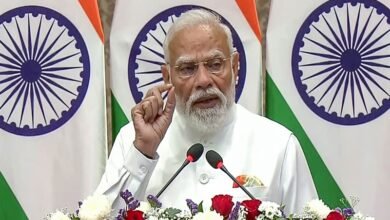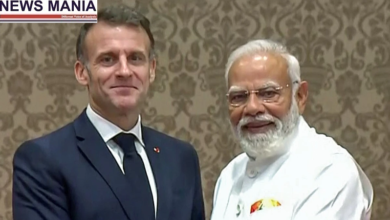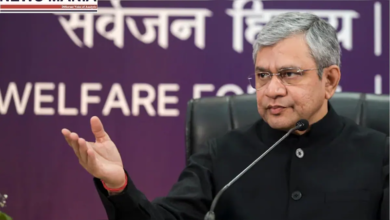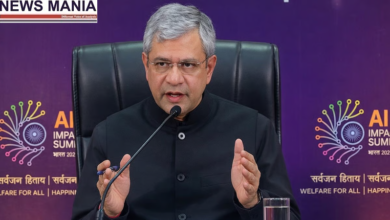Bangladesh’s weakening economy could benefit Indian economy
News Mania Desk / Piyal Chatterjee / 24th January 2025
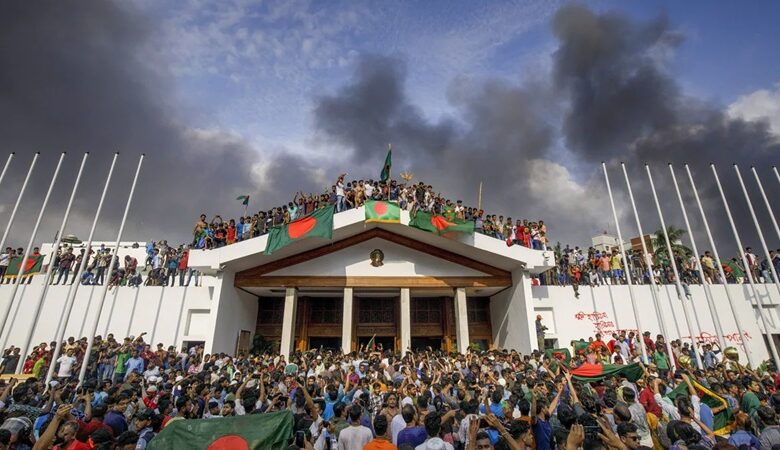
The economy of Bangladesh was thriving and rivaling India in GDP growth and other essential economic metrics during the tenure of former Prime Minister Sheikh Hasina. However, following Hasina’s exit, the nation has experienced a swift downturn in economic expansion and is getting further entrenched in a recession. Reports from the World Bank and IMF indicate that Bangladesh’s GDP growth rate has dropped significantly as rampant unemployment has taken hold since Hasina was removed from power. Bangladesh’s textile sector, the foundation of the nation’s economy, is nearing collapse and is requesting a bailout package to rescue itself from difficulties.
According to the World Bank report published on Thursday, the removal of Sheikh Hasina deterred investors, weakening Bangladesh’s industries and adversely affecting the nation’s economic growth.
The report highlighted that Bangladesh was one of the rapidly expanding economies globally before the Covid-19 pandemic, achieving a GDP growth rate of 7.9 percent, but the economy has significantly decelerated since Hasina’s fall in August last year. The World Bank projects the country’s economy will grow at 4.1 percent in 2025, whereas the IMF anticipates a lower growth rate of 3.8 percent. In addition to the economic slowdown, Bangladesh is also facing soaring inflation, which has risen to 10.34 percent currently, up from 7.7 percent in 2022. The World Bank has identified Bangladesh, Pakistan, and Sri Lanka as countries expected to encounter significant economic difficulties this year.
“Under Hasina’s rule, Bangladesh — along with India, Indonesia and 36 other nations — entered the ranks of middle-income countries but now, as the World Bank report states, political turmoil has “dampened economic activity and worsened investor confidence,” Strategic affairs expert Brahma Chellaney said in a post on X.
At the same time, the World Bank report highlighted that elevated inflation has considerably diminished the buying power of the people in Bangladesh, which has further impeded progress. Analysts caution that increasing inflation might provoke more instability in the nation, and the deceleration of operations in factories, particularly in the textile sector, will directly affect Bangladesh’s exports.
The present condition of Bangladesh’s economy offers a distinct chance for India, which might occupy the gap left by Dhaka’s declining exports, particularly in the textile sector.
India’s economy is consistently expanding at a stable rate exceeding seven percent, and due to the turmoil in Bangladesh, which is significantly disrupting production, various global companies experiencing losses from this situation are now considering relocating their operations to India and prioritizing Indian manufacturers, as suggested by reports. Relations between India and Bangladesh have reached a historic low following the removal of former Prime Minister Sheikh Hasina, with an interim government led by Nobel Prize winner Muhammad Yunus now in charge in Dhaka.
Extensive communal violence has been inflicted upon minorities in Bangladesh, particularly Hindus, leading to deteriorated relations between Dhaka and New Delhi, with the latter blaming the Yunus-led interim government for inadequate action and ignoring the atrocities committed by radical Islamist factions against the Hindu minority in the nation.



